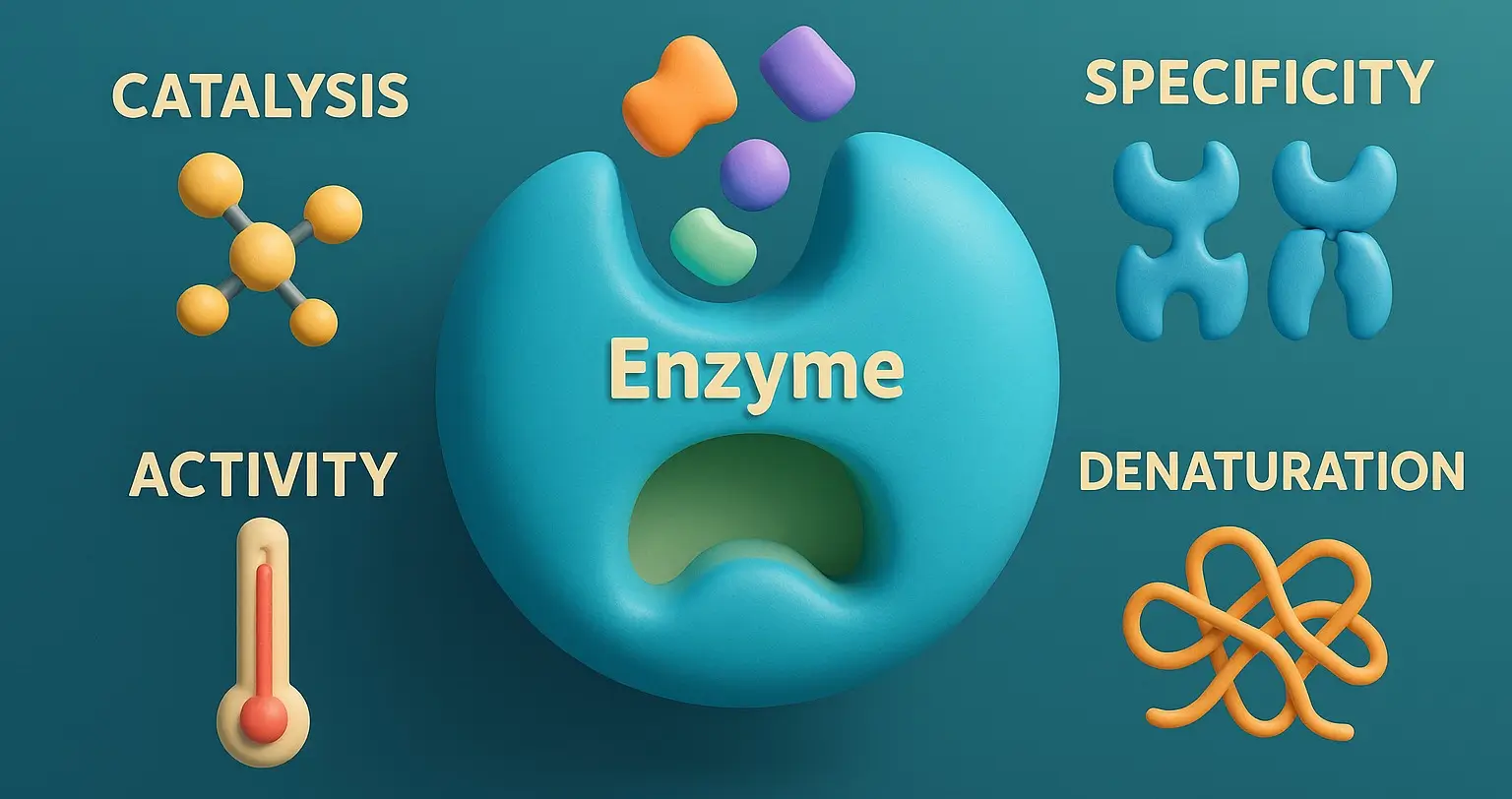Enzymes Properties Definition
- Enzymes Properties: It is biological catalysts, typically proteins, that speed up the rate of chemical reactions in living organisms without being consumed in the process.
- They are highly specific, efficient, and function under mild biological conditions.

-
Catalytic Efficiency:
- Enzymes accelerate chemical reactions by millions-fold, making vital biochemical processes occur rapidly.
-
Specificity:
- They exhibit high specificity, recognizing and interacting precisely with specific substrates due to the unique structure of their active sites.
-
Saturation Kinetics:
- Reaction rates increase with substrate concentration until enzymes are saturated, reaching a maximum velocity (Vmax) beyond which the rate plateaus.
-
Environmental Sensitivity:
- Enzyme activity is influenced by factors like pH, temperature, and the presence of inhibitors or activators, each enzyme having optimal conditions for maximal activity.
-
Reversibility:
- Many enzyme-catalyzed reactions are reversible, with the direction dependent on substrate and product concentrations.
-
Regulation:
- Enzyme activity can be modified through mechanisms such as allosteric regulation, covalent modification, or changes in enzyme synthesis to meet metabolic demands.
-
Cofactor Dependence:
- Many enzymes require non-protein cofactors—metal ions (e.g., Mg²⁺, Zn²⁺) or organic molecules (coenzymes)—to be active.
Click Here to Watch the Best Pharma Videos

